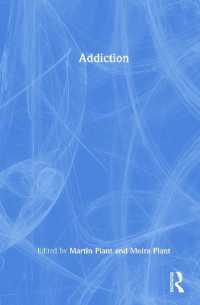- ホーム
- > 洋書
- > 英文書
- > History / World
基本説明
New in paperback. Hardcover was published in 2008. Chronicling the rise of the Iraqi public sphere from 1921 to 1958, this work reveals that the Iraqi intellectual field was much more democratic and pluralistic than historians have tended to believe.
Full Description
The Other Iraq challenges the notion that Iraq has always been a totalitarian, artificial state, torn by sectarian violence. Chronicling the rise of the Iraqi public sphere from 1921 to 1958, this enlightening work reveals that the Iraqi intellectual field was always more democratic and pluralistic than historians have tended to believe.
Orit Bashkin demonstrates how Sunni, Shi'i, and Kurdish intellectuals effectively created hyphenated Iraqi identities, connoting pride in their individual heritages while simultaneously appropriating and integrating ideas and narratives of Arab and Iraqi nationalism. Illustrating three developmental stages of Iraqi intellectual history, she follows Iraqi intellectuals' changing roles, from agents of democracy, to specialists who analyze the population, to deeply entrenched members of society committed to change. Based on previously unexplored material, this eye-opening work has significant contemporary implications.
Contents
@fmct:Contents Acknowledgments xxx Introduction: Hybrid Iraq 1 Part 1 Aspects of Pluralism in the Iraqi Public Sphere 000 1 Modest Hopes: Iraqi Intellectuals in the Early 1920s 000 2 Protecting Pluralism, 19311945 000 3 Renaissance and Revolution, 19451958 000 Part 2 National Narratives 000 4 The Production of Pan-Arabism(s): Narratives of Iraqi-Arab Nationalism 000 5 Strangers in our Midst: Iraq's Others 000 6 The Rural Nation: Intellectuals, Tribesmen, and Peasants 000 7 Educating the Nation: Modes and Theories of Discipline 000 Conclusion 000 Appendix: Political Affiliation of Prominent Intellectuals 000 Notes 000 Bibliography 000 Index 000








